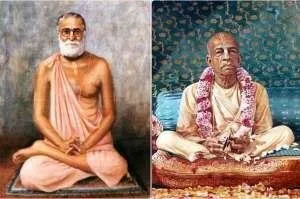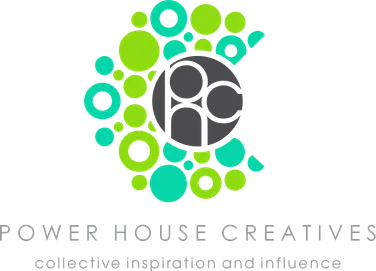Happy Full Moon in June to you all. Human nature is such that we are learning all the time. In youth our parents and school teachers give us the basic lessons we need to grow in skill and competence. The potentials are there within us from the start, somehow built into our DNA. We inherit them from our forefathers, our fathers (may they be happy today, since it’s Father’s Day here) and our mothers. But once we mature into adulthood it’s up to us whether we continue the process of learning in a positive or negative manner. Close the doors of learning and life will smash them open and oblige you to accept those lessons from the school of hard knocks.

In India the mother is seen as the first guru. Guru means “teacher” in Sanskrit. Literally it comes from the word to mean “heavy”, implying heavy with knowledge. We learn the basics from our mother, including how to respond emotionally to the world around us, for better or worse. Bad habits can be learned just as easily as good ones. It depends on the teacher or parent in the formative years. But once we gain adulthood, we have hopefully internalised the teacher or parent to enough of a degree so that they will become the inner voice that continues to guide us throughout the rest of our lives.
Learning never ceases, as any academic will confirm. There is always another course or degree to obtain, especially in technical or IT subjects where new data emerges yearly. We need to stay updated and current in our field of industry if we want to maintain our edge, our skill set that we bring to the job. The thoughtful soul journeying through life will make a conscious effort to learn the ropes even just to survive, what to speak of thrive. And along the way they will seek out bona fide teachers in their field of interest or need.
And these guides come in all forms. As we already mentioned, the mother is one of them, the school teachers too, of course, but there are many more, found in books and fields of learning everywhere. With the facilities available today we can practically find a teacher for any subject online, with plenty of wisdom and experience to impart, often for free. Costs do not imply that the lesson has more value. Often the financial tag attached is unrelated to the contents of the lesson. The best insights are usually free, though those other specialized skills may sometimes require a professional study course.
If we give up being open to leaning, then life will be the teacher and throw learning curves in our direction to see if we can handle them. In these cases life is our teacher, and the people we meet are all teaching by their example, which is the best method generally.
There is a tendency in the minds of those who spend a lifetime studying or acquiring information to sometimes become inflated in their opinion of their erudition or expertise on a subject. This can be contrasted against those who spend a lifetime acquiring wisdom. The latter will manifest the symptoms of their realizations by coming to the opposite conclusion to the former information seekers. With wisdom one realizes that we actually know very little, compared to what is really possible. Real wisdom breeds humility and an awe for the enormity of the potential knowledge about life, the universe and everything.
The more you gain in wisdom, the less you realize that you know. So there are two types of growth from the lessons of life, one is information-based and the other is wisdom-based. They are described as theory versus realization. Information versus experience, theory versus practical perhaps. The former builds the data base and curiously the ego, while the latter builds the character and the maturity of the soul.
In the Vedic tradition of India, where learning and culture have been preserved for thousands of years, there is an ancient text regularly recited by students that says:
jnananjana-salakaya
cakshur unmilitam yena
tasmai sri-gurave namah
“I offer my respectful obeisances unto my spiritual master, who has opened my eyes, which were blinded by the darkness of ignorance, with the torchlight of knowledge.”
The use of the word “jnana” in the first and second lines (pronounced “gyana”) translates from the Sanskrit to mean “knowledge”. When the “a” letter is used as a prefix to "jnana" in the first line, it implies a negation, and thus means “ignorance” or lack of knowledge. Sanskrit is the original root language of the planet apparently, particularly noticeable in the ancient Latin or Greek languages. Take for example the same use of the letter “a” as a prefix in the word “amorphous”, meaning without shape or form, again used as a negative.
The fact is that without teachers in whatever field we aspire to, we might be wandering around in the dark, using trial and error and suffering the hard knocks far more regularly than if we sought out guides who have walked the path and can show us the way. They are like pathfinders who bring the torchlight of knowledge, with which we can avoid the pitfalls, based on previous experience. And those guides have learned their knowledge from their guides in turn.
This is known as the chain of succession, as knowledge is handed down from teacher to student and then on to the next student and so on down the line for generations. The empirical method or ascending method of acquiring knowledge, as practised by the likes of Thomas Edison, may lead us to conclude, like him, that we at least know 999 ways not to build a light bulb. And we may get it right the thousandth time, but it would be much easier if we inquired from those who already know, like Tesla.
This is the descending method of learning, based on receiving guidance and instruction form a higher authority in the field. Science is trying to build and climb the stairway to heaven, but the wisdom of the philosopher comes more from learning how to be receptive to the ladder as it is lowered down to us from the heavens, and then being lifted up by it. Tesla received his information in his mind’s eye, so to speak. He saw the visual representations of his discoveries already completely formed in his imagination. He had access to revelations from a higher source since childhood, and thus never really described himself as the inventor or the maker, but merely the recipient of what was already present in nature.
This is just one example of the two types of knowledge and the two types of students, whether the subject be electric power or life in general. We all have access to the inner guide, the built-in teacher who can reveal to us the way, or the solution to the tests of life. But not all of us have cultivated the receptivity to hear the soft voice of that guide as it speaks to us. Therefore we do well to seek an external manifestation of that teacher from whom we can inquire, until such a time as we can internalize that teacher and have them speak to us from within.
We can ask ourselves the question - “what would my teacher do in this case?” whenever we are faced with a challenge, and if we have trained well in obtaining the knowledge from that teacher, then we will always be able to call on that guidance in the rest of our life. And ultimately at some point we too become the teacher as we have children or students of our own, literally or figuratively. In this way the lessons of life are mastered generation after generation.
What we need to be careful of is a potential break in the line of transmission from one to the next. Over the course of millennia, the risk is that real and profound insights into the mysteries of life get lost, forgotten or misinterpreted. This has unfortunately happened already in some fields. And may continue, especially when unscrupulous leaders emerge who deliberately keep their citizens in the dark in order to maintain a position of power over them for selfish ends. In my country of South Africa, the first European settlers were vastly more learned in science and technology than the locals they encountered at the time, but instead of sharing their knowledge with the various cultures that they met in Africa, they kept the knowledge to themselves in order to maintain domination and power. They developed a system which became known as “Apartheid” where schools were divided along racial lines and all the education went to the Europeans and very little to the Africans themselves. It was actually forbidden, even in my childhood, to attend the good schools unless you were of European descent.
Nelson Mandela, of course, managed to rise above these limitations somehow, and eventually even studied enough to become a qualified lawyer, so there is always a way to succeed for those intent on truth and knowledge. But the odds were against him and millions of his countrymen simply due to the deranged and illusory egocentric myopic view of the so-called advanced intellect of the European. This is a clear example of how knowledge does not imply wisdom. Information does not include insight. Theory and realization are two differing perspectives of the same truth.
When it comes to the ultimate questions of life, the existential quest for truth, meaning and self-realization, mental speculation is not enough. Knowledge needs to be grounded in wisdom as well as experience to be genuine. It needs to come from an authoritative source, from a teacher or code of teachings to be authentic. Otherwise it is either sentimentalism or speculation. Relative truth for you on today does not equate to absolute truth for all humanity for all time. And objective self-awareness and discernment is knowing the difference.
And even that self-awareness needs to be backed by learning from the right source to really be validated. Abstract philosophical quests for truth and the quest for enlightenment – things which we all inherently have within us in dormant form – cannot be based on trial and error, or speculation or mental concoction. Many have tried and it has turned out to be detrimental to those around them. Even social and political movements have sprung up based on what was thought by the proponents thereof to be in their best interest, only to become disastrous aberrations of illusion, in the clarity of hindsight or the torchlight of others more aware of their humanity and their unity with all life.
So on your path of awareness, learning and consciousness, remember to validate your mental constructs in the clear light of those who have built their castles in the mind before you. Reinforce the walls of your philosophical palace of wisdom with references to those more ancient and learned cultural representatives that have walked the same path before you over the eons of time, and in that way prevent illusory concoctions from weakening the cement that binds your ideas. Be like a lawyer and base your evidence on past case studies, use references to great scholars in your field. You will find that if they speak the truth, it will resonate for all time and for all people, regardless of the culture form which they emerge on this planet that we all call home for now.
